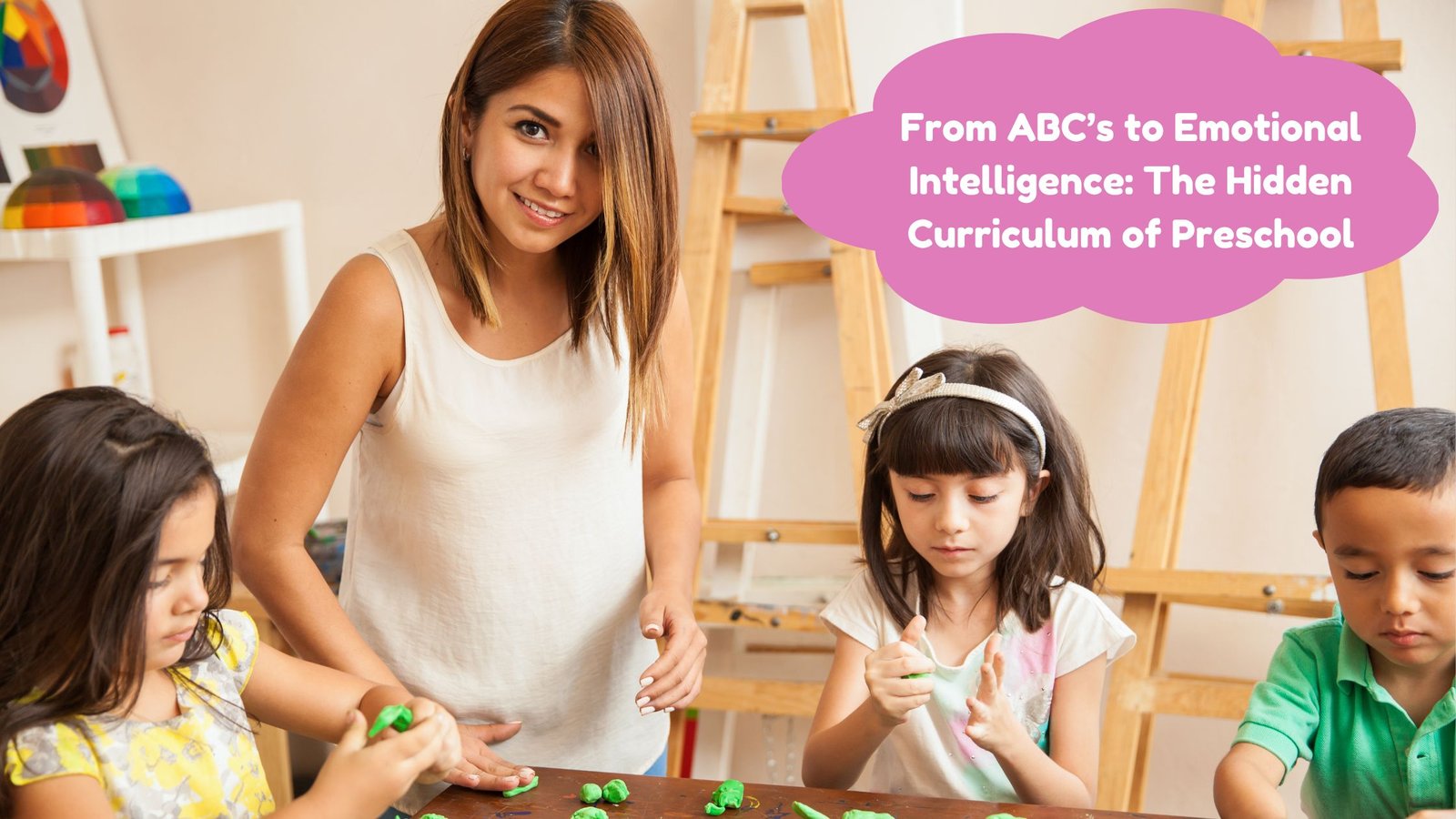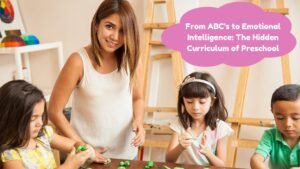Early childhood education is more often than not synonymous with teaching the basics of letters, numbers, and shapes, especially while considering the best preschools in San Jose. But besides traditional academic learning, there would be an equally relevant part of preschool education: emotional intelligence. Understanding emotions, nurturing empathy, and developing social skills are important aspects of a child’s development, and they mostly find their subtle nourishment during one’s preschool years.
At Precious Moment Preschool we provide the structural building blocks for cognitive development, emotional learning shapes the way children come to relate to themselves and others. This “hidden curriculum” works in the way to make a child develop not only as a learner but also as a compassionate and well-adjusted individual.
Here are the key aspects you may consider:
The Importance of Emotional Learning in Preschool
Emotional IntelligenceIntelligence involves certain skills of dealing understandingly, regulating, and communicating one’s emotions effectively. In practical life among young children, this development starts in preschool by identifying and describing one’s feelings. It is during these early years that young children start connecting emotions and behaviors while they learn to manage feelings in appropriate ways, such as frustration or excitement.
The preschool environment is structured to accommodate this emotional development. The teachers initiate the children into social encounters in which the children learn to express their feelings and grasp what others might be feeling. Learning to successfully engage in these early emotional experiences is just as important in the course of a child’s development as learning to count or to say the alphabet.
Empathy Teaching by Social Interaction
Preschool also provides one of the first contexts in which a child participates in daily social interactions outside his or her family. The normal events in any preschool classroom include sharing, taking turns, and conflict resolution. These are teachable moments in empathy.
They learn to identify emotions in their friends and how the action of the child has impacted them. For example, when a child takes a toy from their friend, the teacher can explain to the child why their friend is distressed and prompt them to take the initiative to apologize or return the toy to their friend. Such incidents develop a sense of empathy and cooperation, which is someday necessary for life.
Building Confidence Through Emotional Expression
Preschool emotional learning involves a process of giving confidence to the children for the open expression of their feelings. The teachers, while creating a safe and nurturing environment, encourage the children to talk about their feelings- be happy, sad, or even confused. This practice would bring out emotional IntelligenceIntelligence and build self-esteem, knowing full well that one’s feelings are valid and need expression.
Children develop emotional security from learning that they can feel and express their full range of emotions, which in turn helps them approach challenges resiliently, optimistically, and confidently at school and later on at work.
The Role of Play in the Development of Emotions
Play forms a significant part of preschool education, and therein lies perhaps the first great exploration of emotions to which many children are exposed. Whether this is imaginative play or group games, there is always a certain amount of emotional processing on the part of the child as they act out different scenarios, work through feelings of frustration when a game doesn’t go as planned, or experience the joy of collaboration.
Guided play gives them a safe space to explore these complex emotions. Indeed many teachers use playful activities for teaching emotional lessons to kids and helping them get very articulate about their feelings, which in turn teaches them how to work problems out with others. Such activities develop emotional understanding apart from cognitive and motor skills.
Creating a Well-Rounded Learner
By using emotional learning, early childhood education will ensure that the child grows into a balanced character. Emotional Intelligence Intelligence is said to guarantee future success, which is termed here not only academic success but also general success in life. Children can control their emotions, be emphatic, and know how to communicate; therefore, they are particularly capable of establishing more solid relationships, facing challenges, or working their way out with a positive attitude.
Preschools offer more than academic preparation; they lay the foundation for lifetime emotional health and personal growth. Preschool balances both cognitive and emotional learning, thus providing the child with the means to thrive.
Conclusion
Shaping Future Success Emotional learning is an aspect of early childhood education that cannot be understated. While preschool helps children grasp the academic fundamentals, this stage in a child’s development is important in helping the young one understand and navigate his or her emotions.
It is through interaction with others, playing, and well-thought-out guidance that kids build empathy, confidence, and emotional intelligence skills that will last for a lifetime; after all, what preschool does is to shape nothing but continuous learners, kind and emotionally intelligent individuals.
If you are ready to see how a holistic education can prepare your child, contact Priya’s Precious Moments to learn more about their early childhood learning philosophy.






